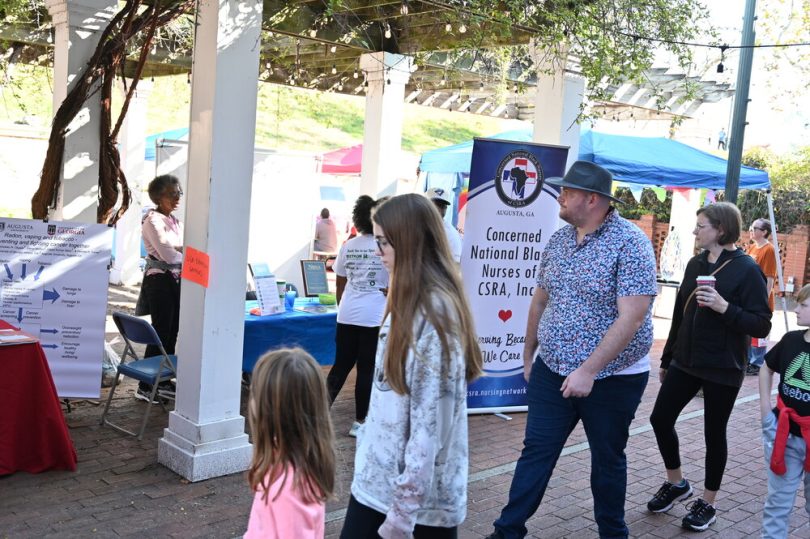The White Ribbon Fall Fest was created in a partnership between the Georgia Cancer Center, Medical College of Georgia’s Oncology Interest Group, and the White Ribbon Project, to help increase awareness about lung cancer’s risk, prevention opportunities, and treatment options.
“We want to educate our community about the importance of lung health and getting screened. This event is a great way to share information while also having fun,” says Daniel Miller, MD. Miller is Chief of Thoracic Surgery & Director of the Lung Cancer Screening Program at the Georgia Cancer Center and Wellstar MCG Health, and a spearhead for the event.
According to the American Cancer Society, there are an estimated 236,740 new cases of lung cancer each year in the United States. Around 130,180 deaths occur from the disease annually. Ultimately, it does not matter what caused a person’s lung cancer. What matters is that anyone that gets the disease can get the help and treatment they need to overcome it. At the Georgia Cancer Center, we believe everyone deserves to receive compassionate care and support through their cancer experience.
A patient’s journey through the lung cancer program usually begins with radiology, where an x-ray or computerized tomography scan shows some sort of growth inside the lung. Islam, who came to Augusta University Health and the Georgia Cancer Center in July, is to do a biopsy removing a piece of that growth. Once the biopsy is complete, the tissue goes to the pathology department to see if the growth is cancerous.
“In reality, anyone with lungs can be diagnosed with lung cancer,” said Maryclaire Regan, community program coordinator for the Georgia Cancer Center at the Medical College of Georgia at Augusta University. “According to the Centers for Disease Control and Prevention, 10% to 20% of lung cancers, which is about 20,000 to 40,000 people, are diagnosed in people who have never smoked. And data analysis by the American Cancer Society has found 20% people who die of lung cancer in US never smoked or used tobacco.”
Many people who never smoked were exposed to secondhand smoke through their parents, spouse, or workplace. There is an increasing trend of lung cancer in “never smokers” and the Georgia Cancer Center is working to address the stigma surround lung cancer and to raise awareness about the disease by educating the community.
“Even for people whose lung cancer is attributed to current or past tobacco use, smoking for many is not simply a habit, but a powerful addiction that is tough to break without help,” Regan said. “The tobacco industry knows this, which is why they maintain addictive levels of nicotine in their cancer-causing products and spend billions of dollars marketing them. The industry fuels stigma around lung cancer by deftly shifting criticism and responsibility away from their corporations and onto customers with ‘freedom of choice’ marketing.”
Along with the Lung Screening Program, members of the Lung Cancer Care team discussed current treatment options for lung cancer patients, support services available for patients and their family, and information about clinical trials that are testing new options for treatment of both small cell and non-small cell lung cancer.
“For a long time, there weren’t a lot of hopeful options for lung cancer patients,” Miller said. “Now, we’re starting to see advances and growth in the field offering better treatments helping patients live longer with a better quality of life.”


